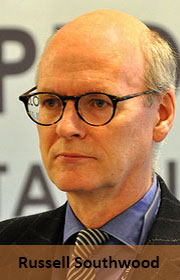 In the main, Africa’s universal service agencies have not covered themselves in glory. Although money has been collected from operators, it has largely sat in the bank gathering interest.
In the main, Africa’s universal service agencies have not covered themselves in glory. Although money has been collected from operators, it has largely sat in the bank gathering interest.
Even in countries such as Kenya, which have expended large amounts of energy and resources on putting in place broadband infrastructure, roll-out to citizens not in the addressable market is missing. Kenya is only now about to launch a universal service agency.
Even where they have been operational, universal service agencies have lacked the clout to make things happen quickly. One agency at the Intel universal service summit, held in Cape Town last week, said it had difficulty co-ordinating its efforts with the rural electrification body. Without electricity and roads, the cost of remote roll-out is so much higher.
But there are a handful of such agencies in Africa that have gone about their task with energy and are spending their annual budgets effectively. Two of these are Lesotho and Ghana.
Lesotho’s agency gets its income from a 1% levy on operators and a minimum 25% of the revenues that its parent body — the Lesotho Communications Authority — raises. It spends 100% of the US$1,1-$1,2m it raises in this way. Started in 2009, its programme of work has thus far focused on mobile network coverage expansion, setting up an Internet exchange point and the registry for the national .ls domain.
Since 2009, it has rolled out 20 base stations in remote rural areas where neither of the two existing mobile operators wanted to go. These projects have benefited at least 63 400 people in some 320 villages in the rural areas of the country. In 2013/2014, its 61 projects benefitted 5 476 people.
These are mountainous places without roads or electricity. So, to facilitate the process, the agency spends between 20%-25% of its budget on road and electricity infrastructure. The latter is mainly solar panels but it prefers grid connections — solar panels are all too often stolen.
About 80% of these base stations are now operationally profitable. Some are better than others. The programme is mainly voice, but some have 3G connections, says Nthabiseng Pule, executive secretary of Lesotho’s universal service agency.
It has profiled more villages for coverage and anticipates that some of these will also be profitable on an operational basis.
In 2013/2014, the agency added an emphasis on broadband Internet and has 13 projects to connect schools in a project carried out with the International Telecommunication Union costing $855 000. The project was done in partnership with the two mobile operators.
“The fund faced the challenge of there being a higher demand for services in unserved areas than there were funds for projects,” says Pule. As a result, six projects for mobile network expansion had to be deferred to 2014/2015”.
Ghana’s universal service agency, the Ghana Investment Fund for Electronic Communications (Gifec), was established in 2004 but did not get its legal framework until 2008 when the Communications Act was introduced. It collects 1% of net revenues from telecoms operators, giving it $67/year to spend. It has four programme areas: cyber labs, basic telephony access, ICT for livelihoods and an ICT awareness programme.
There are 10 projects under these programmes. The cyber labs include city information centres, 440 schools, 30 libraries and, interestingly, 12 prisons — with the service aimed at inmates.
The basic telephone programme rolls out mobile voice coverage to remote areas. It uses three independent service providers — K-Net, Mer Telecom and Rom Telecom — and the base stations put in place can be used by all operators. There are almost 40 base stations in the remote areas of Western Ghana and Volta. They provide both voice and data, the latter being a free service. Only two of the 20 are not making money on an operational basis after the capital subsidy.

Gifec is debating its next long-term plan and discussion is focused on the idea of setting up an independent rural network that can be used to connect all areas of this kind as well as outsourcing. “As most mobile companies are selling their towers, we may have to look for a tower company to arrange it,” says Gifec business development manager Philip Prempeh.
The challenge of satellite costs (which are typically 60% of a remote base station’s operational expenditure) are being considered: “These base stations can only be done by satellite. We want the regulator to give an undertaking on quality of service. Satellite costs are coming down and are now about half of the original quotes we had.”
Two things stand out from these examples. Firstly, agencies need to tackle the roads and electrification aspects of the project. Secondly, many of the mobile phone coverage projects sit in the area between addressable markets and non-market areas. Many are profitable after the capital expenditure has been written off through subsidy.
The challenge for governments and regulators in many African countries is to get in place an effective body to address these universal service issues. And perhaps the time has come to absolve the mobile operators of their original licence obligations to go to these areas and to allow independent operators (as in Ghana) to do the infrastructure provision.
- Russell Southwood is head of Balancing Act Africa

